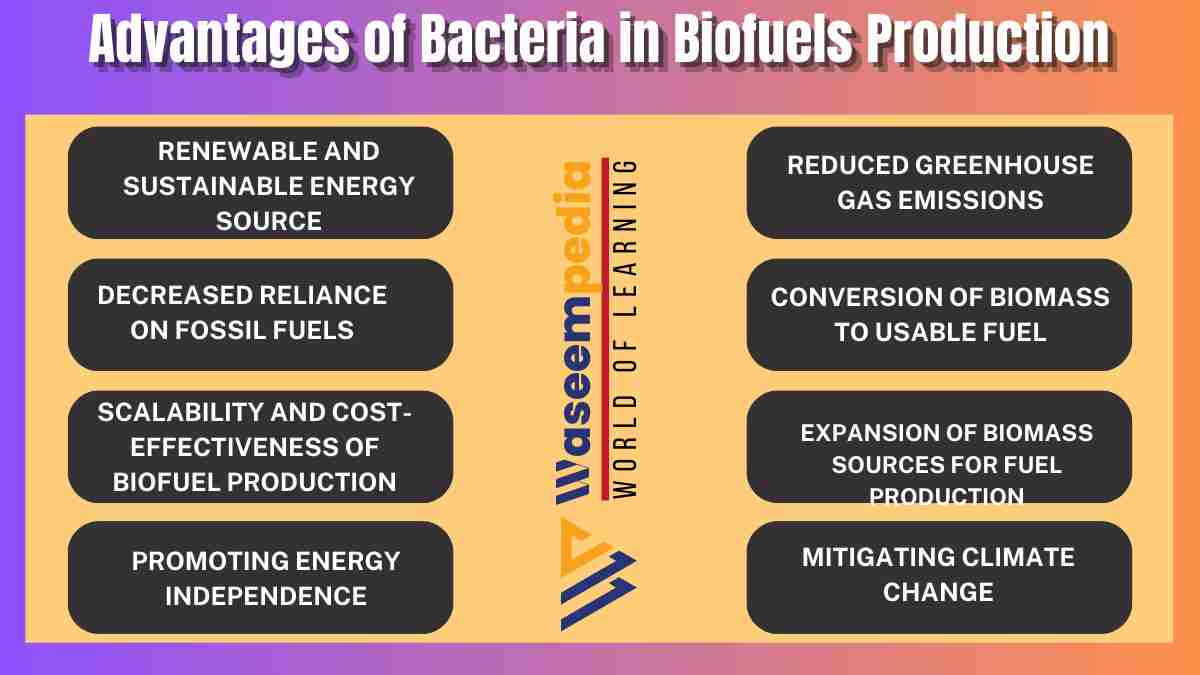Bacteria play a critical role in biofuels production, providing numerous advantages for the development of sustainable and environmentally friendly energy sources.
Their ability to convert biomass into usable fuels through biomass conversion and fermentation processes offers a renewable alternative to fossil fuels. With the aid of genetic engineering, researchers can further optimize bacteria for enhanced efficiency and expand the range of feedstocks.
By harnessing the unique capabilities of bacteria, the biofuels industry is making significant strides towards a more sustainable and greener future.
Biofuels, renewable energy sources derived from biological materials, have gained significant attention as alternatives to fossil fuels. Bacteria play a crucial role in biofuels production, offering numerous advantages that contribute to the development of sustainable and environmentally friendly energy solutions.
Their unique metabolic capabilities and ability to convert biomass into usable fuel make them valuable tools in the biofuels industry. In this article, we will explore the advantages of bacteria in biofuels production and highlight their significant contributions to renewable energy.
Introduction of Bacteria in Biofuels Production
The need for sustainable and renewable energy sources has led to increased interest in biofuels. Biofuels are derived from biological materials such as plants, algae, and waste products. Bacteria, with their unique metabolic capabilities, play a vital role in the conversion of biomass into usable fuels.
By harnessing the advantages of bacteria, the biofuels industry aims to reduce reliance on fossil fuels and mitigate environmental impact.
5. Advantages of Bacteria in Biofuels Production
5 Advantages of Bacteria in Bio fuels Production are as follows.
1. Biofuels and Sustainability
Biofuels offer several advantages over fossil fuels, including reduced greenhouse gas emissions and decreased reliance on non-renewable resources.
Unlike fossil fuels, which release carbon dioxide that was sequestered millions of years ago, biofuels recycle atmospheric carbon dioxide through photosynthesis. This cycle creates a more sustainable and carbon-neutral energy source.
2. Bacteria in Biomass Conversion
Bacteria excel in the conversion of biomass into usable fuels. Through their metabolic processes, bacteria break down complex organic materials, such as plant matter and waste, into simpler compounds.
This biomass conversion can yield various biofuels, including ethanol, butanol, and biodiesel. Bacteria possess the necessary enzymes to efficiently break down biomass components, such as cellulose and hemicelluloses, and convert them into fuel precursors.
3. Fermentation and Biogas Production
Certain bacteria are capable of fermenting biomass and producing biogas, a mixture primarily composed of methane and carbon dioxide. This process, known as anaerobic digestion, occurs in environments devoid of oxygen, such as landfills or biogas plants.
Bacteria break down organic materials, releasing methane-rich biogas that can be used as a renewable energy source. Biogas production from bacterial fermentation reduces greenhouse gas emissions and provides a sustainable alternative to fossil fuels.
4. Genetic Engineering for Enhanced Efficiency
Genetic engineering techniques allow scientists to enhance the efficiency of bacteria in biofuels production. By manipulating the genetic makeup of bacteria, researchers can optimize metabolic pathways and improve the yield of desired biofuels.
Genetic engineering also enables the modification of bacteria to utilize a wider range of feedstocks, expanding the possibilities for biofuels production.
5. Environmental Benefits
The use of bacteria in biofuels production offers several environmental benefits. First, biofuels derived from bacterial processes emit fewer pollutants, including sulfur and particulate matter, compared to traditional fossil fuels.
Second, biofuels contribute to the reduction of greenhouse gas emissions, as the carbon dioxide released during their combustion is offset by the carbon dioxide absorbed by the biomass during growth. Finally, biofuels can help reduce dependence on non-renewable resources, promoting energy independence and sustainability.

